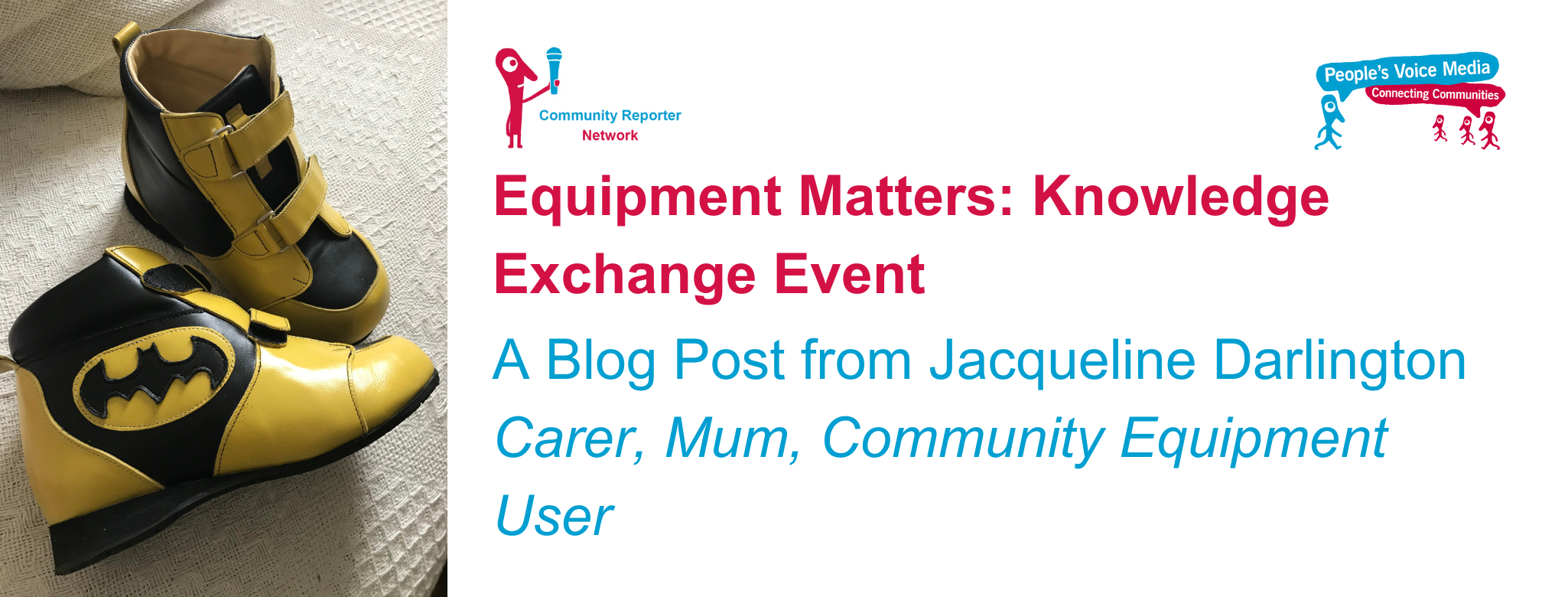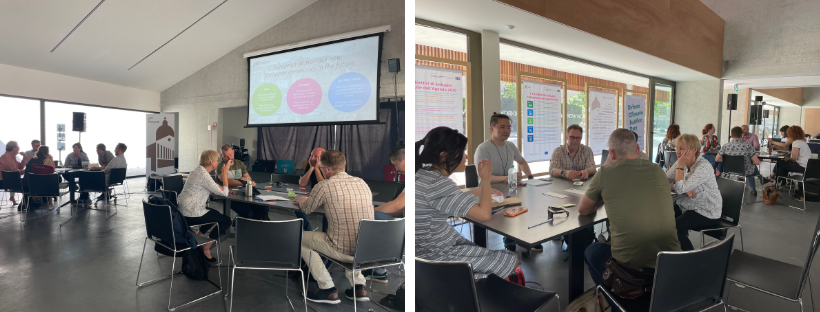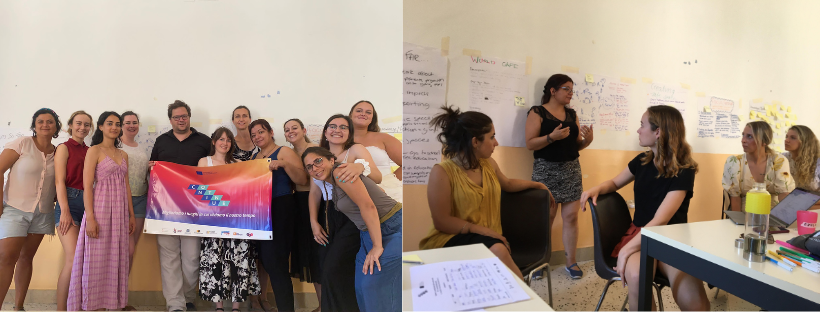EQUIPMENT MATTERS: KNOWLEDGE EXCHANGE EVENT

A Blog Post by Jacqueline Darlington – Carer, Mum, Community Equipment User
There’s a quiet power in bringing people together. Recently, I joined a brilliant knowledge exchange filled with people who get it—carers, equipment User, prescribers, commissioners—all with one shared focus: community equipment.
What stood out wasn’t shiny new gadgets. It was people. People talking about co-production, timely access, and how the smallest things—like a properly placed grab rail or the right seating—can make the biggest difference.
As a mum to Joshua, who relies on equipment every day, and as someone who uses it myself, I know equipment is about choice, control, and dignity. It’s about staying in our own homes, living gloriously ordinary lives, and not feeling like we’re doing it alone.
Someone at the event said, “It’s the peer support and solidarity that keeps me going—knowing I’m not the only one navigating this.” That stayed with me.
Sharing our lived experiences isn’t just powerful—it’s essential. It’s how we reimagine a future where people like us help shape the systems meant to support us. Manufacturers, commissioners, prescribers—listen to our stories.
What next? We’re not sure. But what we do know is: we’re coming back together. And we’ll keep raising our voices until the system hears us.
“Equipment matters because people matter.” – Isaac Samuels, 2024
Find out about Co-Production on the TLAP website linked here.
Head over to the Community Reporter Website to see the Equipment Matters Film and explore the full set of stories – including Jacqui’s!
Want to discover what Gloriously Ordinary Lives are doing in the world of support? See how they are building a movement that is working to check whether or not someone who might need some support is getting to live the life they choose and the support they get is helping and not getting in the way. Check out their site here.
See what Medequip have to say about their involvement in this work on their page.

